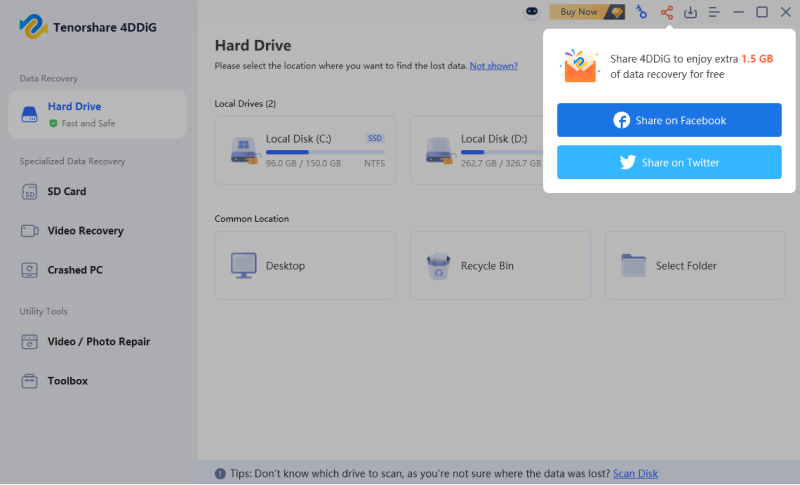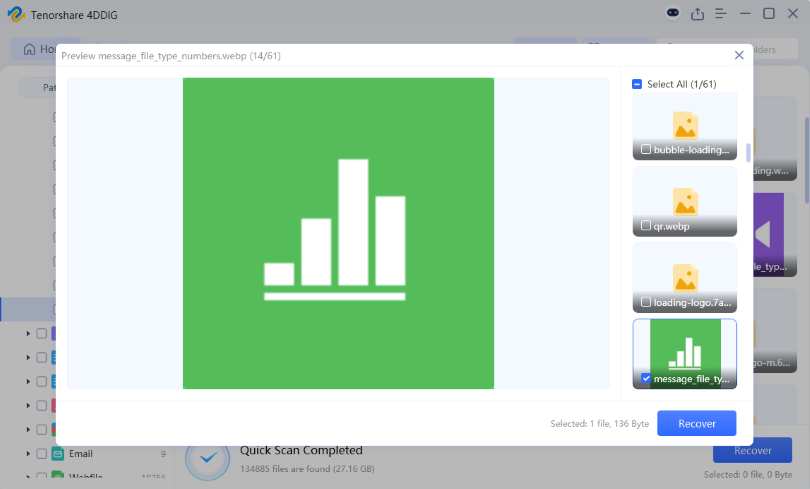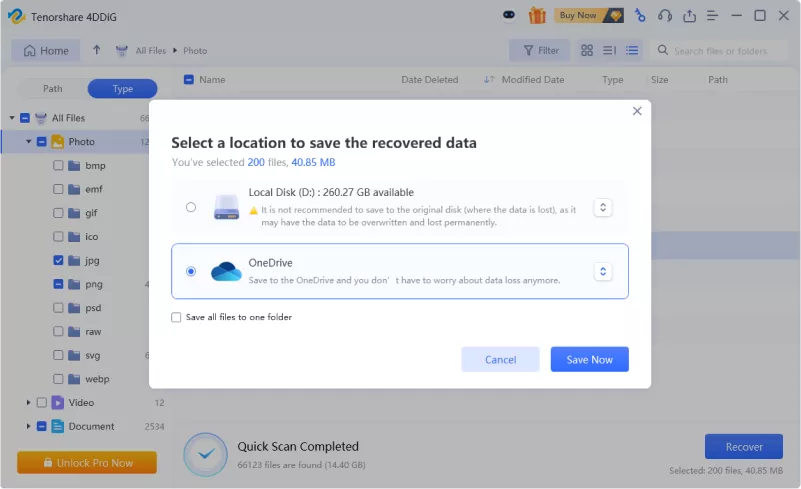💡 Summarize with AI:
Have you ever experienced sudden data loss or formatting on your hard drive? Losing important files and photos can be extremely frustrating. However, with the right data recovery software, you may be able to recover your lost data.
This article will introduce five free hard drive recovery software including their features and usage methods, along with detailed steps for safely recovering your data.
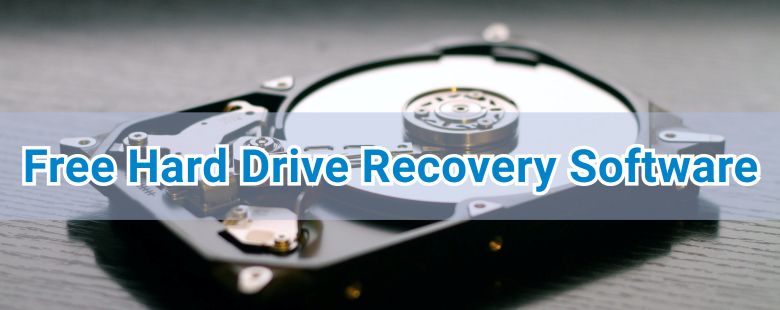
- No.1: 4DDiG Free Hard Drive Recovery Software [Win & Mac] HOT
- No.2: Windows File Recovery
- No. 3: TestDisk
- No. 4: Recuva
- No.5: PreviousFilesRecovery
- Precautions When Using Free Hard Drive Recovery Software
No. 1: 4DDiG Free Hard Drive Recovery Software
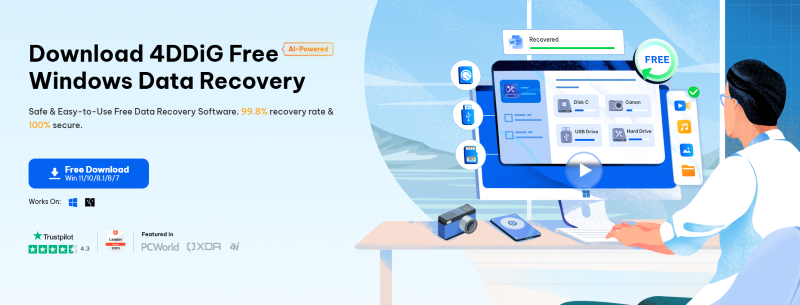
Introduction
4DDiG Free is a popular free hard disk drive recovery software renowned for its high recovery rate and user-friendly interface.
It supports over 2,000 file formats and can recover data from various storage devices, including HDD, SSD, USB flash drives, and SD cards.
4DDiG Free features industry-leading recovery technology and is easy to use, making it accessible even for beginners.
Key Features
- Includes 2GB of free data recovery capacity.
- Supports over 2,000 file formats and any storage device.
- Allows you to preview file contents befre recovery.
- Intuitive interface makes it easy for beginners to use.
- Advanced algorithms ensure up to 99% recovery success rate.
Pros
- High recovery rate and high security.
- Intuitive and easy-to-use interface.
- Supports over 2,000 file formats.
- Preview feature allows you to check files before recovery.
- Supports various storage devices.
Cons
- The free version has limitations on the amount of recoverable data.
- Scanning large files may take a relatively long time.
Steps to Use 4DDiG
First, it's recommended to download and install 4DDiG Free to your device.
Launch the 4DDiG free data recovery software, select “Hard Drive” on the screen, then click “Scan”. (You can get 500MB of free storage space, and earn an additional 1.5GB of free recovery space by sharing this software on social media.)

Please wait a moment while all files on the disk are displayed. You can preview the desired files before recovery.

Select the location where you want to store the recovered data. You may consider saving them to a cloud storage service such as OneDrive, Google Drive, or Dropbox, then click “Save Now.”

No. 2: Windows File Recovery
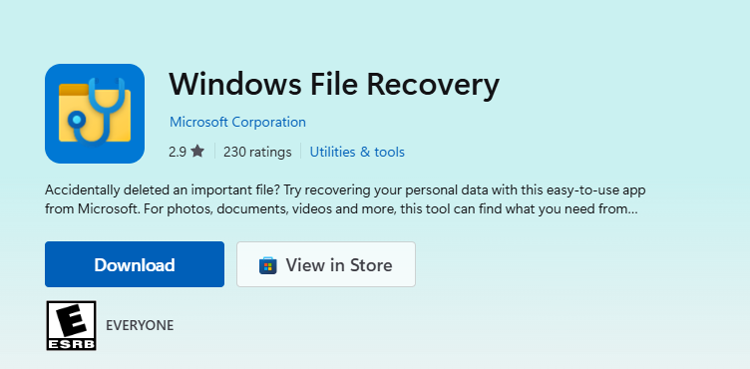
Introduction
Windows File Recovery is Microsoft's official free hard drive file recovery software, compatible with Windows 10 and later versions. This hard drive recovery software is recommended because it is genuine Microsoft software and highly reliable. However, using the Command Prompt requires some technical knowledge.
Key Features
- Highly reliable, as it is an official Microsoft tool.
- Supports NTFS, FAT, and exFAT file systems.
- No additional fees required.
Pros
- Microsoft official security tool.
- Completely free and unrestricted.
- Deeply integrated into the system.
Cons
- Command-line operations can be challenging for beginners.
- No preview feature, which is not convenient.
- Recovery rates may be lower than other software.
Steps to Use Windows File Recovery
- Download Windows File Recovery from the Microsoft Store.
- Open Command Prompt with administrator privileges.
- Enter the appropriate command to recover files from your hard drive.
- Review the recovered files and restore them as needed.
No. 3: TestDisk
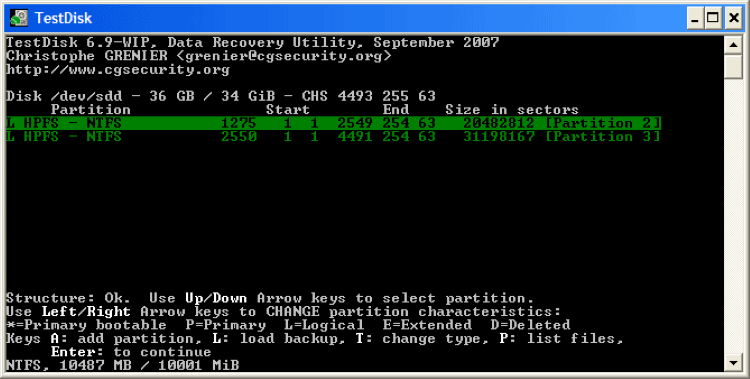
Introduction
TestDisk is a free, open-source data recovery utility designed primarily to help recover lost partitions and make non-booting disks bootable again.
It works on Windows and macOS, and is widely used by advanced users. Unlike many commercial tools, it’s completely free but runs in a command-line interface.
Key Features
- Restores lost or deleted partitions.
- Recovers deleted files from FAT, exFAT, NTFS, and ext2 file systems.
- No hidden costs, license fees, or recovery limits.
- Scans disks deeply to locate lost data.
Pros
- 100% free and open-source.
- Extremely powerful for partition recovery and boot repair.
- Cross-platform and lightweight.
- Trusted by IT professionals worldwide.
Cons
- Command-line only, which is not friendly enough to beginners.
- Requires technical knowledge to use effectively.
- Recovery of individual files is possible but not as user-friendly as tools like 4DDiG or Recuva.
- Recovery of individual files is possible but not as user-friendly as tools like 4DDiG or Recuva.
Steps to Use TestDisk
- Get TestDisk from its official site, extract and run it.
- Open the program and select the hard drive you want to fix.
- Choose "Analyze" to scan for lost partitions or files.
- Pick the partitions or files you want to recover and save them to another location.
- Restart your computer if you restored a boot sector or partition table.
No. 4: Recuva
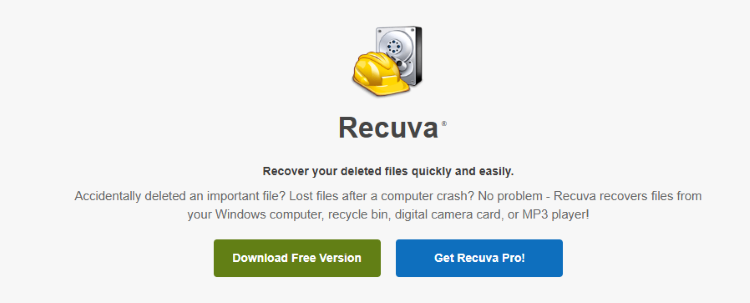
Introduction
Recuva is a long-standing free hard drive recovery software developed by Piriform, the creators of CCleaner. It has been widely favored by users for years and delivers stable recovery performance.
Key Features
- High reliability, highly regarded by users.
- Supports multiple file formats and storage options.
- Comprehensive data deletion capability.
Pros
- Highly reliable software with a proven track record of long-term use.
- Core functionality available free of charge.
- Simple, user-friendly wizard format.
- Portable version also available.
Cons
- Support for the latest file formats may be slow.
- Deep scans take a long time.
- Recovery rates are lower than the latest software.
Steps to Use Recuva
- Download and install Recuva, then launch the wizard.
- Select the file types you wish to recover (you may also choose All Files).
- Specify the file location and run the scan.
- Select the files you want to recover from the found files and perform the restore.
No. 5: PreviousFilesRecovery
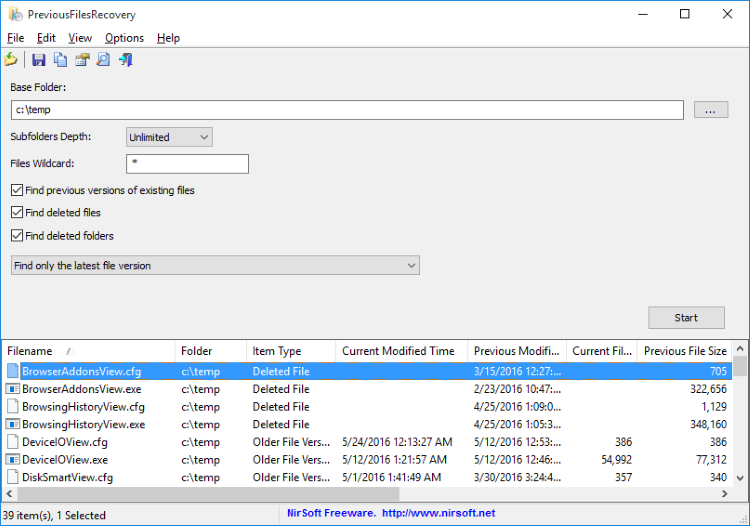
Introduction
PreviousFilesRecovery is a software application that utilizes Windows' “Previous Versions” feature to recover files. It is designed to restore files that have been accidentally overwritten.
Key Features
- Utilizing Windows Volume Shadow Copy feature to recover data.
- Lightweight and easy to use.
- System files can also be recovered.
Pros
- Leverage standard Windows features.
- Lightweight, placing no strain on your system.
- Portable version, no installation required.
- Supports system file recovery.
- Completely free with no restrictions.
Cons
- Shadow copies are unavailable if disabled.
- Recovery time is limited.
- Certain file formats may not be supported.
- Limited preview functionality.
Steps to Use PreviousFilesRecovery
- Launch PreviousFilesRecovery and specify the folder to recover.
- Click the “Scan” button to search for shadow copies.
- Select the files to recover from the list of found files.
- Click the “Recover” button, specify the save location, and complete the recovery.
Precautions When Using Free Hard Drive Recovery Software
Do not overwrite data
Deleted data may still physically exist on the hard drive, but as new data is written, the deleted data areas will be overwritten, making recovery difficult. After data loss, minimize write operations to the hard drive immediately.
Save the recovered data to another drive
If you save the recovered files to their original location, they may overwrite other deleted files. Therefore, be sure to save them to another drive or USB flash drive.
Check the limitations of the free version
Many free software programs impose limitations on the amount of recoverable data or the number of files they can handle. If you need to recover important data, be sure to verify beforehand whether your chosen software can operate within these constraints.
- Capacity Limit: Data recovery capacity for the free version.
- Feature Limit: Preview functionality and deep scan.
- Support Limit: Scope of technical support.
Choose reliable software
Some data recovery software may contain malware or misuse your data, so it's crucial to download from official websites and check reviews and reputation before use.
Conclusion
The five free hard drive recovery tools introduced here each have their own unique features and advantages. Choose the right software and follow the correct steps are crucial for improving the success rate of data recovery.
Notably, Teorshare 4DDiG Free Data Recovery offers high recovery rates and user-friendly operation, making it a recommended choice for a broad range of users from beginners to advanced. Its free version provides sufficient functionality, so we suggest trying it first.
Don't forget to back up regularly to prevent losing important data. Learning how to use these recovery programs can minimize the risk of data loss during emergencies.
100% Secure
💡 Summarize with AI:
 ChatGPT
ChatGPT
 Perplexity
Perplexity
 Google AI Mode
Google AI Mode
 Grok
Grok
